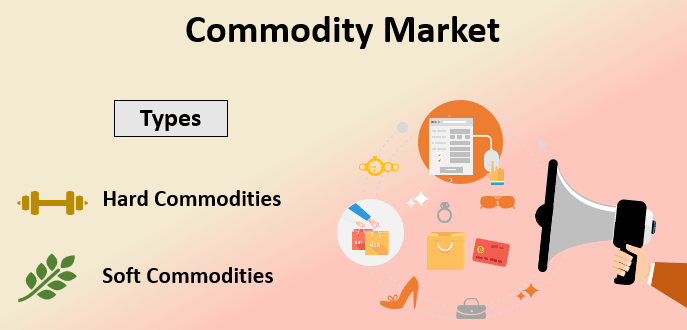Types of Commodity Market

A number of businesses make huge sums of money from the trade in different types of commodities. For example, the airline industry must secure massive quantities of fuel at steady prices. Futures contracts help these companies purchase fuel at a fixed rate to avoid market volatility. Other industries, such as farming cooperatives, utilize futures contracts to minimize the risks of fluctuating prices. Commodity prices are sensitive to changes in the supply and demand of certain products, and the volatility of the market can threaten their existence.
Demand in domestic/international market affects price of a commodity
The price of a commodity depends on demand in both the domestic and international markets. Because the world economy depends on commodities, there is an obvious connection between the price of a commodity and global economic activity. The price of a commodity is a direct reflection of the changes in demand in the world, and is a useful cross-check to Reserve Bank forecasts on global economic activity. But how do commodity prices change?
Supply and demand in a commodity’s domestic and international markets are linked through trade and storage. Despite this connection, the price of a commodity may not be directly linked to the supply or demand of a neighboring commodity. Substitution effects, on the other hand, are a function of price, and they relate the change in price of one commodity to a change in the price of a substitute. During the world financial crisis, this relationship was broken.
Trading in derivatives
Derivatives are contracts between two or more parties. Commodity futures are one example. Unlike options, which expire immediately, commodity futures settle at expiry, meaning that the holder of the contract actually receives the underlying commodity. However, because commodities come in many different grades and variations, the typical futures holder does not necessarily want the actual commodity at expiry. Therefore, most traders will rollover or offset their contracts before expiry, resulting in higher liquidity for their second position.
Derivatives on the commodity market are used by investors to protect themselves from price fluctuations. Unlike traditional securities, these derivatives offer limited protection and high-return potential. The risk of volatility in the underlying asset is eliminated because the buyer is not required to buy the entire commodity. They only need to pay a small percentage of the actual value of the commodity. These derivatives can be used to protect small businesses, hedge portfolios, and hedge against market risks.
Trading in spot market
There are many ways to trade in the spot market for commodities. Spot prices change every minute, and are often determined by minimum contract prices. In a liquid market, however, the spot price may be affected by the inflow of orders. If the spot price is low and you’d like to take advantage of it, you should purchase or sell a commodity futures contract. The following are three of the most popular methods of trading in the spot market.
The primary advantage of using the spot market for commodities is its convenience and high-quality products. You can purchase a commodity in a small amount, but you must sell it at a higher price to recoup the cost. But the downsides of trading in the spot market for commodities are also its disadvantages. Since commodities are traded in smaller lots, it is difficult to compare futures prices to spot prices, and you can’t reference the price of one commodity against another.
Investing in stocks of companies related to a commodity
While stocks of companies related to commodity markets tend to rise and fall with the price of commodities, investors can benefit from a correlation between prices of these commodities and the stocks of these companies. Commodities are often linked to other commodities, such as energy and metals. While commodity prices move in tandem with stock prices, many other factors can affect them. These non-commodity factors may include capacity utilisation, debt-to-equity ratio, valuation, and government policy.
Many investors choose to invest in the stocks of companies in a commodity market. These companies produce raw materials that are used to make other products. Oil, for example, is a commodity, and is used in a variety of products. Airlines, for example, spend enormous amounts of money on fuel, and a drop in oil prices can affect the profitability of the company. Investing in stocks of companies related to a commodity market will allow you to benefit from the same factors, but for a much smaller investment.





